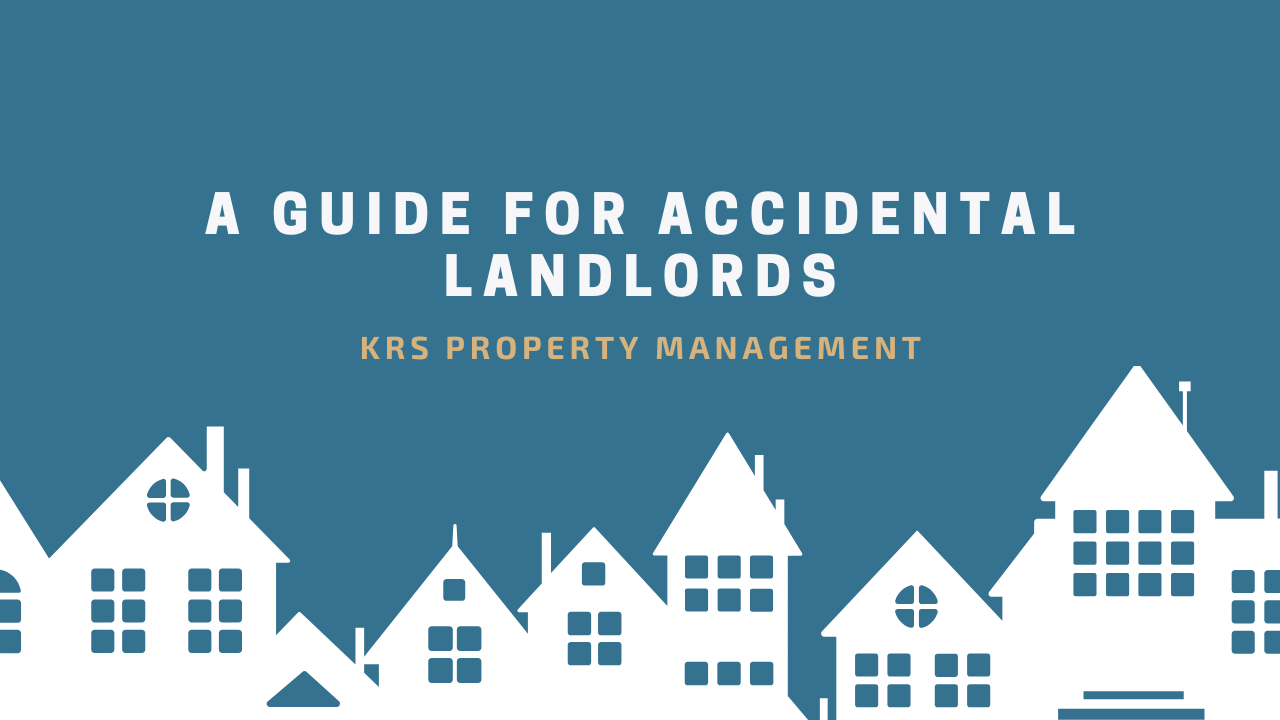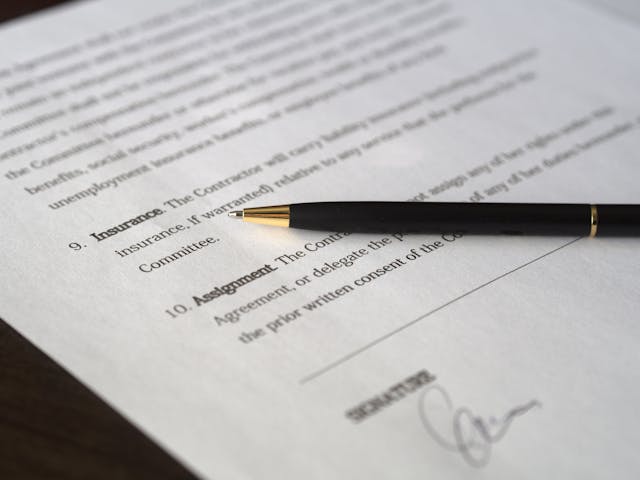
Key Takeaways
Accidental landlords must understand Virginia’s landlord-tenant laws to ensure compliance with safety, maintenance, and tenant rights requirements.
Thorough documentation, competitive rental pricing, and careful tenant screening are essential for protecting property value and minimizing disputes.
Partnering with a professional property management company provides expertise, local market knowledge, and day-to-day support, helping landlords turn unexpected property ownership into a profitable, stress-free investment.
Becoming a landlord by accident is more common than many expect. Perhaps you inherited a family home, purchased a property that didn’t sell as anticipated, or moved overseas for work, finding yourself suddenly responsible for maintaining and renting out real estate.
In the Commonwealth of Virginia, where cities like Richmond, Fredericksburg, and Alexandria are vibrant rental markets, these unplanned landlords face a steep learning curve. Here’s a guide from KRS Holdings that offers a straightforward, practical roadmap to confidently become a rental property owner.
Understand Your New Role
Stepping into the role of landlord, even unintentionally, transforms you from a passive owner to an active investor or manager. Your tasks now include ensuring the property is safe, habitable, and compliant with Virginia landlord-tenant laws.
It means screening tenants, handling maintenance, setting rental rates, collecting rent, and dealing with disputes or evictions if necessary. Each of these responsibilities carries legal and financial implications.
Virginia’s landlord-tenant regulations require that landlords maintain their properties with basic utilities, proper plumbing, and safety features intact.
Even an unoccupied basement must be free of hazards, and emergency repairs must be addressed promptly. Failing to meet these standards can lead to penalties, legal disputes, or decreased property value.
Establish a Solid Foundation
Start by gathering essential documentation: the title deed, current insurance policy, property tax information, inspection reports, and any warranties still valid on major systems like HVAC or appliances.

Schedule a professional inspection if you haven't already, even if your intention is to rent eventually. Having a baseline assessment helps anticipate repair costs and avoid tenant complaints.
Photograph every room thoroughly, noting any existing damage. Create a condition report and keep it, as well as copies of all communication and receipts, in a secure, organized file. This documentation becomes critical in case of disputes over security deposits or property damage.
Set a Competitive Rental Rate
To determine a fair rent price, explore comparable listings across the areas within or near your location. Consider factors like neighborhood safety, school districts, local amenities, proximity to transit, and employment centers.
You should also factor in costs such as insurance, taxes, maintenance, and vacancy periods. Add a small margin for unexpected repairs. Ideally, the rent you charge covers all expenses and leaves room for savings toward capital improvements.
Many landlords find that a small premium for reliable tenants or well-maintained amenities pays dividends over time in retention and property preservation.
Screen and Select Tenants Efficiently
Thorough screening protects your investment and reduces turnover. At a minimum, request credit checks, proof of income, rental history, and an eviction record. In many of these Virginia markets, good tenants help maintain property integrity and timely payment.
Ensure your screening process adheres to fair housing laws and Virginia state guidelines. Document the decision-making process for each applicant. Consider conducting in-person or virtual walkthroughs of the property and requiring a security deposit consistent with state limits.

Draft a Clear Lease Agreement
The lease is the cornerstone of a landlord-tenant relationship. It should clearly outline rent amount and due date, late fees, maintenance responsibilities, rules about pets or smoking, and procedures for handling repairs or emergencies.
As Virginia law requires, include contact information for yourself or your representative, and ensure the tenant receives a written receipt for each payment.
Include clauses covering property entry notification, as Virginia law mandates notice (typically one or two days) before entering for non-emergency reasons. Address what happens if the tenant vacates early or breaches the agreement, and outline the process for security deposit return, including deduction justifications.
Manage Maintenance Proactively
Routine maintenance preserves your property and keeps tenants satisfied. Scheduling annual HVAC servicing, winterizing plumbing, and inspecting roofs or exteriors helps catch small issues before they escalate. Preventative maintenance is key in Virginia’s humid summers that can accelerate mold or mildew, so remain vigilant.
Respond rapidly to repair requests, especially urgent ones like leaks, electrical problems, or threats to safety. Prompt, professional responses build tenant trust and reduce the likelihood of legal complaints. Keep records of work orders, who performed the work, and all receipts issued.
Navigate Evictions and Legal Challenges
Despite best efforts, issues sometimes escalate to eviction. Virginia landlords must follow specific procedures. You cannot forcibly remove a tenant or shut off utilities; rather, you must serve proper notice to pay or vacate for nonpayment, followed by formal court filings if the tenant fails to comply.

Document every interaction thoroughly, including late rent notices, communication logs, and attempts to resolve issues amicably. Courts look favorably on landlords who demonstrate fair treatment and adherence to legal protocol. Evictions can take weeks, and during that time, you must substantially maintain the property and retain the rental’s financial viability.
Manage Finances and Taxes
Track rental income and expenses with clarity. Consider using accounting software or a spreadsheet that logs rent received, repairs, utilities you pay, insurance, taxes, and property management fees, if applicable. This practice ensures you have accurate figures come tax time, simplifies preparation, and helps you claim deductions.
Also, set aside a reserve fund for large expenses, such as roof replacement, structural repairs, or extended vacancy periods. A healthy reserve protects your cash flow and sustains the property’s condition.
Work With a Professional Property Management
Working with a professional property management firm can quickly turn an overwhelming responsibility into a smooth process. From marketing vacancies and screening tenants to collecting rent and coordinating maintenance, a management company handles the day-to-day tasks that often weigh heavily on new landlords.
Their knowledge of local rental markets and established vendor connections also helps reduce costs and minimize mistakes.
Beyond convenience, a property manager offers peace of mind. You stay in control as the owner, but the operational responsibilities shift to experienced professionals. This means fewer late-night emergencies, reduced vacancy losses, and stronger financial reporting, all of which make the management fee a worthwhile investment for most accidental landlords.

Bottom Line
Accidental landlords face challenges, but with the right approach, the role is manageable. Success starts with clear documentation, knowledge of landlord-tenant laws, fair rental pricing, careful tenant screening, and diligent maintenance. Staying organized and financially prepared reduces surprises while protecting both your rights and your property.
Partnering with a professional property management firm adds stability, expertise, and peace of mind, turning an unexpected responsibility into a long-term asset. If you’re an accidental landlord in Virginia, let KRS Holdings help you maximize your rental’s potential and make property ownership stress-free.






